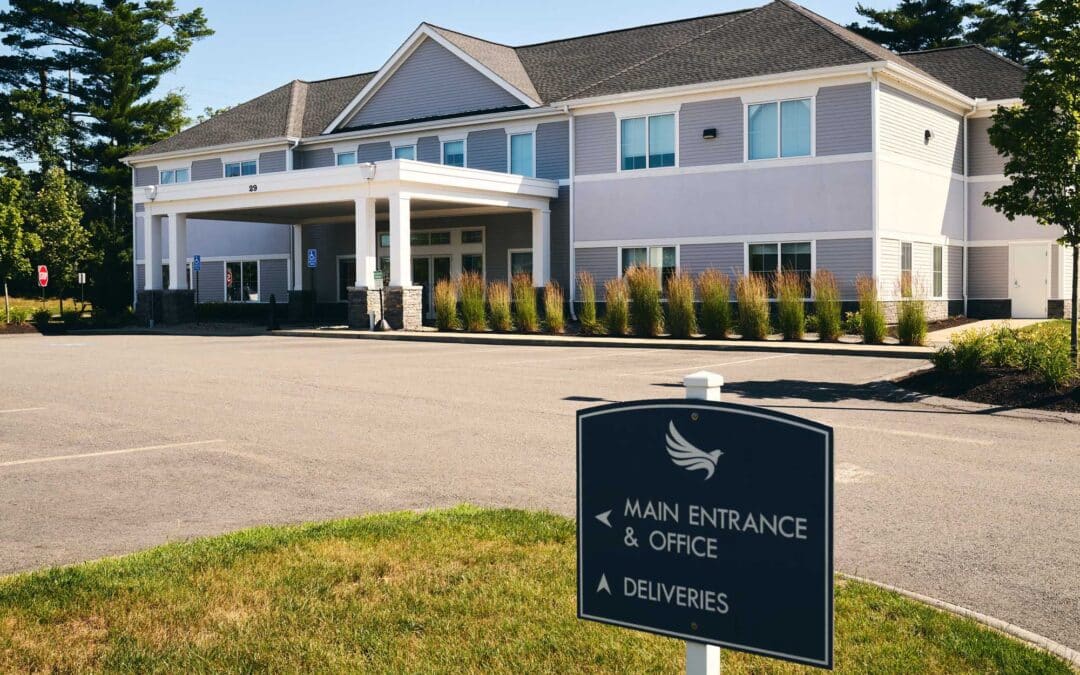Understanding FMLA and Its Relevance to Addiction Treatment
Seeking help for substance use disorders is a crucial step towards recovery. The support provided by the Family and Medical Leave Act (FMLA) can play a significant role in this journey. Enacted in 1993, FMLA offers eligible employees up to 12 weeks of unpaid, job-protected leave for specific family and medical reasons, including addiction treatment.
Eligibility Criteria for FMLA Leave:
- Employment with an employer who has 50 or more employees.
- At least 12 months of employment with the company.
- A minimum of 1,250 hours worked over the past year.
Serious Health Conditions Covered Under FMLA:
The law covers various serious health conditions, ensuring individuals can take necessary time off without fearing job loss. This includes:
- Chronic conditions requiring periodic treatment.
- Conditions necessitating inpatient care.
- Substance use disorders where treatment is recommended by a healthcare provider.
For those grappling with addiction, understanding “Can FMLA be used for addiction treatment?” becomes essential. The answer is yes—FMLA encompasses addiction as a serious health condition. It provides a vital framework that allows individuals to focus on recovery while safeguarding their employment status.
However, the journey to recovery often begins with finding the right treatment facility. If you’re located near Manchester, Massachusetts and are wondering where to find medical detox, there are numerous options available that offer comprehensive drug addiction treatment.
Additionally, understanding the financial aspect of rehab is crucial. If you are unsure about how to pay for rehab, there are resources available that can assist you in navigating insurance verification and other payment options.
Liberty Health Services stands out as a private medical detox center in New Hampshire, offering luxury addiction treatment services. For more information on our services or if you need assistance with insurance verification, feel free to reach out to us directly. We are here to help you on your path to recovery.
Addiction Treatment Options Covered by FMLA
When it comes to addressing substance use disorders, the Family and Medical Leave Act (FMLA) recognizes several types of addiction treatment that qualify for leave.
Inpatient Treatment
Inpatient treatment is one such option, offering a structured environment where individuals receive intensive care around the clock. This setting is ideal for those requiring medical supervision during detoxification or those who benefit from being away from potential triggers.
Outpatient Treatment
Alternatively, outpatient settings provide flexibility by allowing individuals to maintain their daily responsibilities while receiving treatment. Outpatient programs can vary in intensity, ranging from partial hospitalization programs to regular therapy sessions. They are suitable for those with a stable home environment or whose condition doesn’t necessitate constant supervision.
Behavioral Therapy
A crucial component of both inpatient and outpatient care is behavioral therapy. This therapeutic approach addresses underlying behavioral issues and helps develop coping strategies. Techniques such as Cognitive Behavioral Therapy (CBT) and Motivational Interviewing (MI) are frequently employed to facilitate long-term recovery.
For those seeking alcohol and drug treatment near Manchester, Massachusetts, understanding these treatment options under FMLA ensures that individuals can select the most appropriate path toward recovery without compromising their employment status. Each option offers unique benefits tailored to different needs, allowing for a personalized approach to overcoming addiction.
Applying for FMLA Leave for Addiction Treatment: A Step-by-Step Guide
Applying for FMLA leave to address addiction treatment requires careful adherence to specific steps to ensure eligibility and maintain confidentiality. Here’s a step-by-step guide to help you navigate the process:
1. Verify Eligibility
Confirm that you meet the eligibility criteria for FMLA, which typically includes working for an employer with 50 or more employees within a 75-mile radius and having completed at least 1,250 hours of service over the past 12 months.
2. Consult Your Healthcare Provider
Obtain a recommendation from a qualified healthcare provider stating that addiction treatment is necessary. This documentation is crucial as it supports your application under FMLA’s provisions.
3. Notify Your Employer
Provide your employer with notice of your need for leave at least 30 days in advance if possible. If circumstances prevent such notice, inform them as soon as practicable.
4. Submit Required Documentation
Complete and submit any forms required by your employer to process your FMLA request. This often includes medical certification from your healthcare provider detailing the necessity of treatment.
5. Maintain Confidentiality
It’s essential to understand that your medical information, including details about your addiction treatment, is confidential. Employers are obligated to protect this information under FMLA regulations.
6. Consider Working While in Treatment
It’s worth noting that you may be able to work while in a residential treatment program, depending on the nature of your job and the treatment program’s requirements.
Taking these steps ensures not only compliance with legal requirements but also helps safeguard your privacy during this critical phase of recovery.
Job Protection Rights Under FMLA During Addiction Treatment
Navigating addiction recovery can be challenging, but the Family and Medical Leave Act (FMLA) offers crucial support by ensuring job protection during addiction treatment. This federal law provides eligible employees with up to 12 weeks of unpaid, job-protected leave for specific medical reasons, including substance abuse treatment.
Key Legal Rights under FMLA:
- Job Security: Employees on FMLA leave for addiction treatment are guaranteed the right to be reinstated to their original job or an equivalent position upon return.
- Maintenance of Health Benefits: While on leave, your employer must continue your group health insurance coverage under the same terms as if you were working.
- Protection from Retaliation: Employers are prohibited from retaliating against employees who take FMLA leave. This means they cannot fire or demote you due to your absence for rehab.
When it comes to keeping your job during drug detox or alcohol detox, understanding these protections is essential. If an employer threatens your job during this period, it’s important to know that such actions may violate FMLA provisions. Employees have the right to file a complaint with the U.S. Department of Labor if they believe their rights under FMLA are being infringed.
These safeguards enable you to focus on recovery without the added worry of job security, reflecting the broader commitment of FMLA to support employee well-being during difficult times.
Returning to Work After Addiction Treatment: Navigating the Transition with Confidence
Successfully returning to work after FMLA leave for addiction treatment can be both an exciting and daunting experience. It’s essential to approach this transition thoughtfully and with adequate preparation.
Guidance on Transitioning Back to Work Post-Rehabilitation:
- Communicate Early: Keeping open lines of communication with your employer about your return date is vital. Discussing any necessary accommodations ahead of time can ease the transition.
- Gradual Reintegration: If possible, consider a phased return. This approach allows you to gradually adjust back into your role, reducing stress and enhancing productivity.
- Support Systems: Lean on workplace support systems, such as Employee Assistance Programs (EAPs), which can provide ongoing support and resources.
Potential Challenges Faced Upon Return and Strategies to Overcome Them:
- Workplace Stigma: Address potential stigma by focusing on your recovery achievements. Remain proactive in seeking assistance if you encounter discrimination.
- Workload Management: Prioritize tasks and manage workload effectively. Setting realistic goals helps maintain balance between work responsibilities and personal well-being.
Employer Responsibilities Regarding Re-employment:
- Job Restoration: Under FMLA, employers must restore employees to their original or a comparable position upon return from leave.
- Reasonable Accommodations: Employers are obligated to provide reasonable accommodations under the Americans with Disabilities Act (ADA) if applicable, ensuring a smooth transition back into the workplace environment.
It’s important to note that some individuals may wonder about the feasibility of maintaining work responsibilities while undergoing drug detox. With the right treatment plan tailored to individual needs, it may be possible to keep up with work duties during this challenging period.
Returning to work after addiction treatment demands planning, understanding of rights, and clear communication between you and your employer.
Confidentiality, Discrimination Concerns, and Seeking Support During Recovery from Addiction
- Confidentiality in addiction treatment is crucial. Protecting your privacy ensures a safe recovery environment.
- Disclosing addiction status at work carries risks. Employees must weigh the benefits against potential repercussions, such as failing a drug test which can be a daunting experience. It’s important to understand the next steps and options available, including seeking help if necessary.
- The Americans with Disabilities Act (ADA) offers protections against discrimination based on past substance use.
- Seeking help through Liberty Health Services, a leading drug & alcohol detox center in New Hampshire, can provide guidance and support throughout the recovery journey. They offer personalized programs in their addiction rehab center with high success rates.
- Prioritizing mental health and well-being is essential. Focus on self-care to foster a healthier recovery process.
Taking these steps can significantly enhance your recovery experience and work-life balance.


